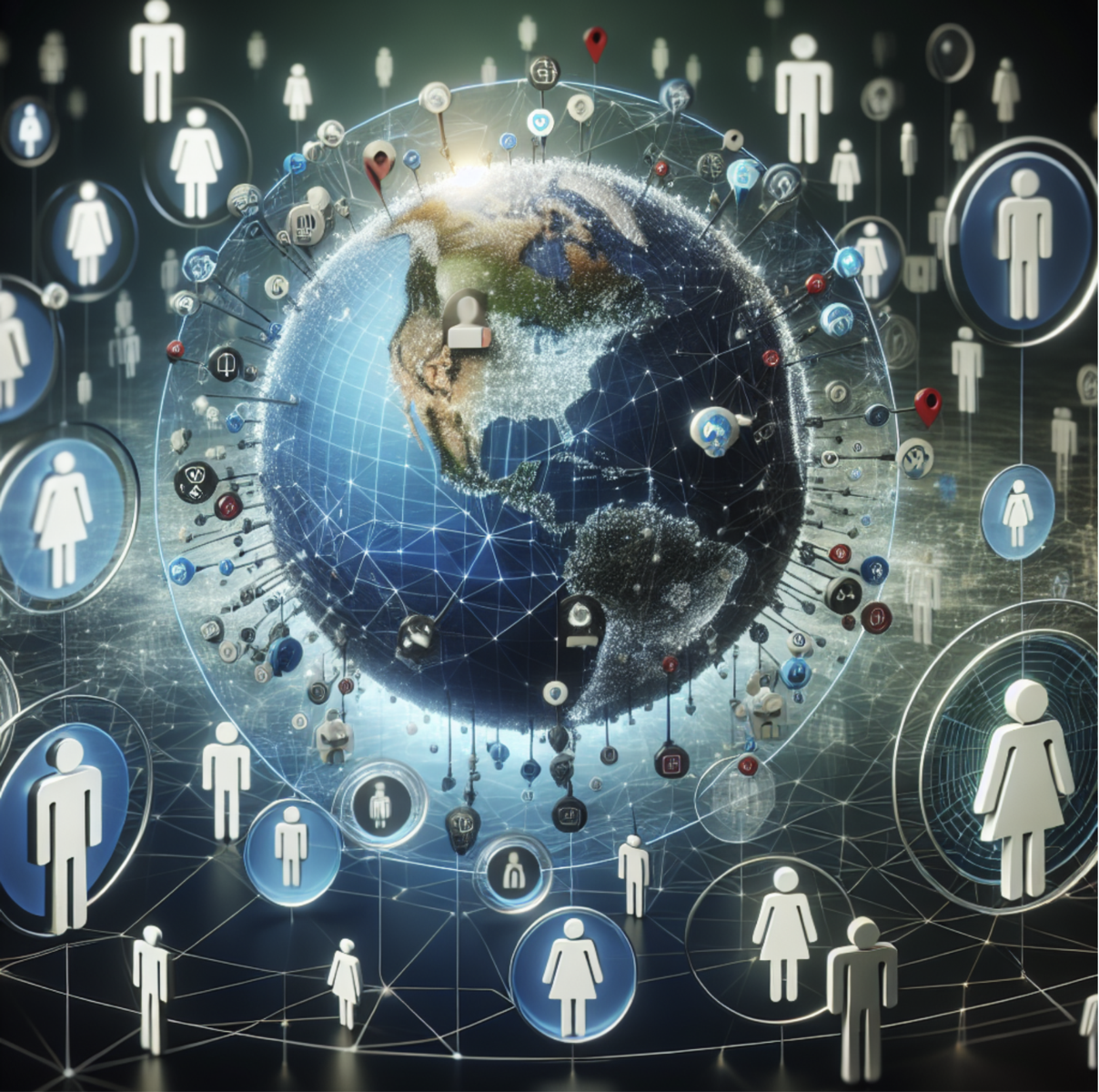Quick Take: 27 January 2024
Decentralized Digital Identities: The Convergence with Personal Data Economies
 Amidst a rapidly evolving digital landscape, a weak signal of change suggests the emergence of a trend with substantial disruptive potential - the convergence of decentralized digital identities with personal data economies. As businesses and individuals become increasingly intertwined with digital systems, the contours of identity authentication, data ownership, and personal privacy are being redrawn.
Amidst a rapidly evolving digital landscape, a weak signal of change suggests the emergence of a trend with substantial disruptive potential - the convergence of decentralized digital identities with personal data economies. As businesses and individuals become increasingly intertwined with digital systems, the contours of identity authentication, data ownership, and personal privacy are being redrawn.
Introduction
The concept of decentralized digital identities (DDIs) is beginning to intersect with the burgeoning personal data economy, signaling a transformation in how individuals control and monetize their personal information. This trend, although in nascent stages, bears the potential to redefine the relationships between consumers, data aggregators, and third-party service providers.
What's Changing?
The landscape of digital identity is shifting from centralized models, where entities such as banks and social platforms hold user data, towards a decentralized paradigm. This transition is underscored by advancements in technologies such as IoT and blockchain, which enable secure, user-centric identity frameworks. Concurrently, there is a growing recognition of the value of personal data, with initiatives exploring how individuals can exert greater ownership over their data and potentially enter into a data economy that allows them to derive revenue from it.
The evolution of this space is propelled by factors such as legislative changes emphasizing digital ID verification, adoption of AI technologies serving identity solutions, and signs of burgeoning crypto involvement in pay structures. This confluence positions DDIs as not just a tool for identification but as a gateway to a personalized data marketplace.
Why is this Important?
The implications of a robust DDI system integrated with a personal data economy are wide-ranging. On a macro scale, it leverages technology to deliver economic growth while promoting digital sustainability. From a micro perspective, it endows individuals with unprecedented control over their digital footprint, creating opportunities for more equitable data transactions.
The ramifications extend beyond individual empowerment; industries may face disruption as the data sourcing paradigm shifts, with ripple effects on marketing, finance, and healthcare. Additionally, the inclusion of decentralized identities in incentive schemes and global payroll, as foreseen in the rise of crypto-based remuneration models, indicates a future where DDIs underpin not just identity verification but also compensation mechanisms.
Implications
Businesses and governments must acknowledge the strategic importance of supporting DDI frameworks, with a focus on fostering trust and ensuring interoperability. Enterprises should anticipate shifts in digital strategies, as consumer data becomes a personal asset rather than a commodity for unilateral exploitation. Financial institutions, for example, must adjust to a scenario where individuals have greater say over their financial data, challenging existing models of credit evaluation and customer understanding.
For regulators, this prompts a need to craft nuanced policies that balance the protection of individual data rights with the facilitation of a thriving digital economy. Visionary policymakers could pioneer frameworks that not only protect but also incentivize individual participation in the data economy, potentially offsetting concerns around data monopolies and privacy erosion.
Questions
Strategic planners should consider several pressing questions: How can industries adapt to consumer sovereignty over data in a decentralized digital identity ecosystem? What collaborative models between the public and private sectors can support the seamless introduction of DDIs? Moreover, how can we ensure inclusivity so that the benefits of a personal data economy are universally accessible?
Summary
The convergence of decentralized digital identities with personal data economies is still forming at the fringes of the current tech landscape. However, its prospective influence over multiple sectors necessitates proactive engagement from stakeholders across the board. By embracing this trend, we can move towards a future that prioritizes individual autonomy without compromising on security or economic potential.
Bibliography
About Quick Take
Part of Shaping Tomorrow's Futures & Foresight Platform
Quick Takes are structured, referenced articles that highlight emerging ideas, experimental innovations or other phenomena or perspectives that might disrupt prevailing worldviews. They are created automatically using the latest forecasts from Shaping Tomorrow's continuous horizon scanning fused with Gen-AI.
Please contact us below if you would like to arrange a demonstration of Shaping Tomorrow's incredible 'Futures & Foresight' capabilities.